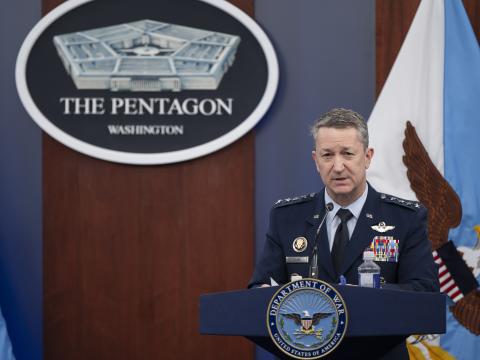New Prototyping Authority Receives a Push
Congress has increased emphasis on more rapid prototyping, including prototyping up through operational capability and more rapid acquisition.
Congress has increased emphasis on more rapid prototyping, including prototyping up through operational capability and more rapid acquisition. This focus will redefine how the U.S. Defense Department works with other parts of the government as well as with industry and academia, notes Michael Griffin, undersecretary of defense for research and engineering. The answers may lie in maximizing the innovative nature of researchers by clearing away the underbrush impeding their progress.
While others are working to improve acquisition within the parameters of the DOD 5000 instructions, the research and engineering office concentrates on prototyping, technical risk taking, advanced development and experimentation. Those activities are not bound by the DOD 5000 instructions in any form, Griffin emphasizes. His office is governed by the priorities set by the National Defense Strategy, but the undersecretariat is not limited by conventional acquisition rules. It intends to take advantage of this exception.
For example, Section 804 of the 2017 National Defense Authorization Act specifically approves rapid prototyping/rapid fielding capabilities for programs valued at less than $500 million that can be accomplished within five years. Griffin says he is working with Ellen Lord, undersecretary of defense for acquisition and sustainment, and Bob Daigle, director of cost assessment and program evaluation (CAPE), to set up a structure for implementing this authorization by default. Under this structure, a program would automatically receive an 804 designation unless declared otherwise.
The office would have 30 days to reject this designation for a program. If program managers don’t hear a decision after 30 days, then they can proceed under an assumption of 804. This would be the opposite of traditional practices, in which permission must be requested and granted to expedite a program, and it should encourage managers to structure their programs to fit 804 criteria, Griffin offers.
The undersecretary has doubled down on speed. “Every chance I get, I’m urging our program managers to go fast,” he says. “I’m trying to help our program managers lead the charge in doing things more quickly with less bureaucracy.”
To empower managers, Griffin has cut out some formerly required activities. “This is a country that knows how to work quickly and well under pressure,” he avows. “It’s just been a while since we challenged ourselves to do it.”




Comments